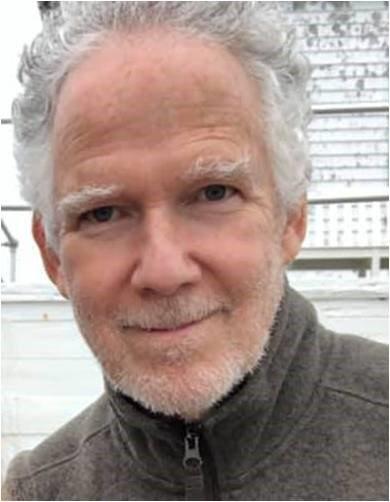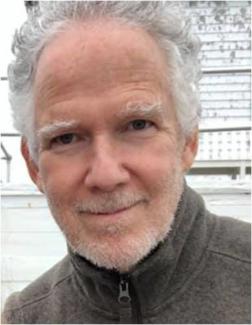The Important Votes on June 14
It’s been almost a year since I argued in this blog that we should “Keep Camden Directly Democratic.” Direct democracy isn’t efficient or easy, as I conceded at that time. But at its best, this bottom-up approach of direct citizens’ participation through town meetings and citizens committees, of which Camden has been so justifiably proud for so long, can provide a critical path to overcoming the divisiveness that so plagues our contemporary political cultural. It’s our best hope of finding “less polluting and more equitable ways of living together.” That’s well worth the extra effort.
Two issues up for a vote at the June 14 “town meeting” could be vital for this goal of retaining direct democracy. The first is to keep Marc Ratner on the Select Board. The second is to keep the vote on approval of the town budget at in-person meetings of the town’s citizens, rather than by secret ballot.
Stopping the sale of the Apollo Tannery property to a private developer and instead turning it into a park – with ample space and attention to our beloved farmers’ market – is hugely important, as well, but I have argued the case elsewhere for voting “no” on Articles 15 and 16 on the town warrant.
Why is reelecting Marc Ratner important?
Marc has been far and away the most consistent and strongest voice on the Select Board in favor of citizens’ input to running Camden. In his own words, Marc is “a huge supporter” of the volunteer committees that other members of the Select Board have left on “hiatus” in the aftermath of pandemic closures. While Marc served on two of these committees himself and sees the “many great ideas over the years [that] have come from committees and members that have amazing expertise,” other Board members seem to see mainly busybodies who interfere with the board doing what it and town officials want to do.
The Megunticook River Restoration project is an issue on which many in the town have seen the Select Board as getting out ahead of itself. I personally don’t agree, but I appreciate Marc’s clarity on the point: What dams to keep, what to remove, and how the river should look in the end are decisions “that the town citizens will make – not the Select Board.” He isn’t alone in that view, but he’s clearer than most. Also, Marc sees the importance of keeping the Tannery property in town ownership and has been consistently respectful of the Friends of Tannery Park citizens’ group that has worked tirelessly to develop ideas for the property that would benefit all those living in Camden.
He articulates a future for Camden that incorporates citizens’ initiatives and input of all sorts. Our beautiful little town doesn’t “have the land or population to support large businesses.” Instead, Marc says: “I visualize Camden as being an intellectual center that reaches out regionally, nationally and worldwide. Two such examples of that already existing right now are the Camden Conference and the Camden International Film Festival.”
Why is an In-Person Town Meeting important?
The main argument for compulsory voting by ballot is that more people will participate. That is not insignificant or easily dismissed. A stop by the Public Safety Building on election day, or to the town office before, is quick and easy compared to attending a lengthy town meeting and listening to people with whom you may disagree. The Select Board already has the right to call for a ballot vote – as they have done this year -- but a volunteer Charter Commission recommended making the secret ballot compulsory, and the Select Board agreed.
Quantitatively, it’s undoubtedly correct that more will vote if it’s a secret ballot. But what about qualitatively? How many of those who do vote by ballot will have any knowledge of what’s in the town budget? Probably not many even of those who walk into a town meeting are familiar with the budget. The difference is that, with an in-person gathering, citizens can stand up and speak. They can argue for changes or rejection. This possibility doesn’t exist at the ballot box. The nothing you know when you enter the voting booth is the nothing that determines your vote, so you probably just vote “yes.”
People can make the case for changes or rejection in newspapers and on news sites, as I’m doing here. But the number who read these is probably even smaller than the number who attend town meetings. If all we can do is exercise a veto in extreme cases, it is not the creative direct democracy we need. It is a barely effective check on the operation of representative democracy in which all the decision-making is delegated to officials.
That’s the way we do things in this country, you might argue. But it’s not how New England towns typically did things, and I would argue that it’s a big part of how we reached the impasse that exists at all levels in American politics today.
Engaging with our fellow citizens, trying to persuade each other – and also listening and sometimes being persuaded to change our minds – is an absolutely necessary aspect of direct democracy. Zoom isn’t up to the task. Nor are workshops or written articles. Those things can be useful tools, but for direct democracy to really work people must talk to each other, live and in-person. This isn’t a question of nostalgia. It’s a vital issue for activists, old and young alike, who see the necessity for bottom-up solutions to the climate crisis, to economic and social inequity, to many people’s sense of being disrespected. It’s worth taking the time to go to a town meeting.
About this blog:
Tales from the Transition

I’m Sarah Miller, a semi-retired international energy and business journalist and editor, and now a Camden resident. Having spent a career learning about old energy, I’ve turned to new energy in recent years. In doing so, I’ve come to see how important fossil fuels and the way they work were to the structure of 19th and 20th Century economies and societies. I’ve also started to imagine what cleaner, more distributed energy forms could mean for the structure of 21st Century economies and societies. The climate crisis is frightening, but the energy and social transitions that accompany it can bring us a better world -- if communities like ours here on the Midcoast work in a bottom-up, “distributed” way to make it so. That’s what Tales from the Transition is all about.
I am active in the community through the Camden Energy and Sustainability Committee, the Camden Philosophical Society, the board of Bay Chamber Concerts and Music School, and the climate activist group Climate Matters Maine. I am a former president of the Camden Conference. The views expressed in this blog, however, are strictly my own.





























